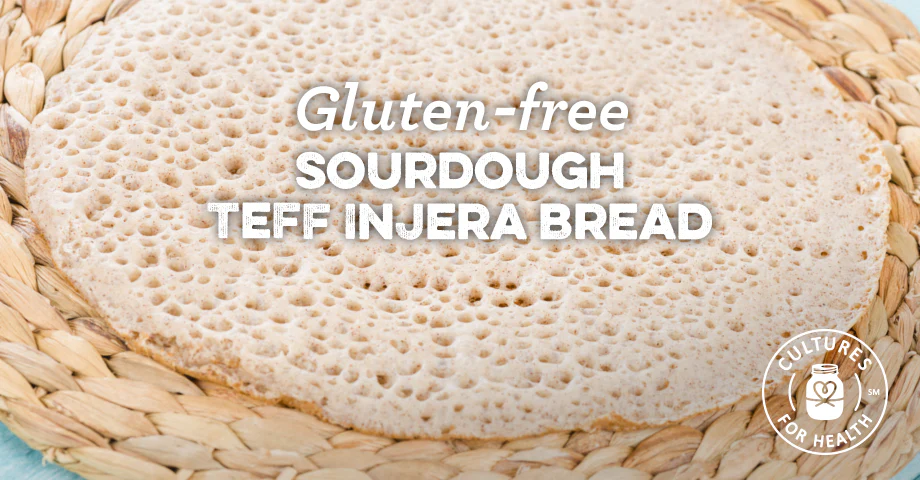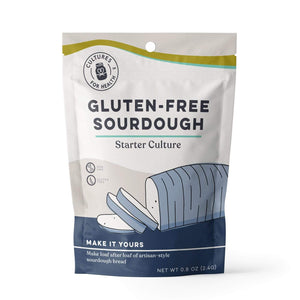
This traditionally fermented flatbread of Ethiopia has a sponge-like texture and wonderful depth of flavor. Made with gluten-free grains and a gluten-free starter, this bread can be eaten alongside stews, meats, and vegetables of all sorts.
30 minutes
720 minutes
2
INGREDIENTS AND EQUIPMENT AVAILABLE AT CULTURES FOR HEALTH
Gluten-Free Sourdough Starter

Gluten-Free Sourdough Starter Culture
$14.99
Not eating gluten? No problem! With the help of our gluten free sourdough starter culture, you can make tangy, fluffy sourdough bread that’s gluten-free.
The GF sourdough starter is an heirloom culture, meaning you'll make endless bread dough all from one starter! Just add water and gluten-free flour.
Sourdough is perfect for beginners, and this gluten free sourdough bread starter is a very forgiving culture and one of the easiest to work with.
Grey Celtic Sea Salt
INGREDIENTS:
- 1/4 cup gluten-free sourdough starter
- 1-1/2 cups teff flour
- 2 cups filtered water
- 1/2 tsp. sea salt
- Coconut oil or ghee for greasing the pan
INSTRUCTIONS:
- Combine all ingredients in a medium bowl and cover with plastic wrap or a tight-fitting lid. Allow to ferment for at least 12 hours and up to three days, the latter of which is a more traditional preparation of injera.
- Place a skillet over medium heat and grease lightly with coconut oil or ghee. Ladle 1/3 cup of batter into the hot skillet and rotate the skillet to distribute the batter into a fairly thin, uniform circle. NOTE: Although making injera is similar to making crepes, injera is not meant to be quite as thin as crepes. The bread should be somewhere between the thickness of a crepe and a pancake.
- Cook batter for a few minutes until you notice holes forming in the middle of the injera and the edges drying and lifting from the bottom of the pan. The top should also be completely cooked as the bread will not be flipped. If the top needs further cooking after the bubbles have popped and formed holes, place a lid on the pan for 1-2 minutes to trap the heat and cook the top through.
-
Transfer the injera to a platter and repeat with remaining batter.

Injera is traditionally used as the utensil in an Ethiopian meal, tearing off chunks of the bread to use to pick up the vegetable or stew that accompanies it.















